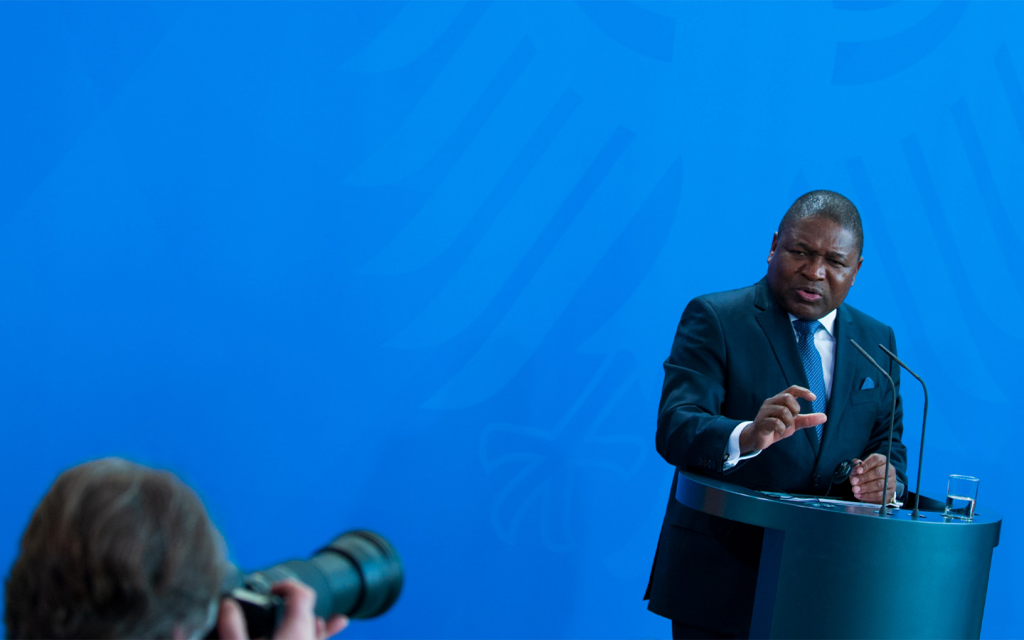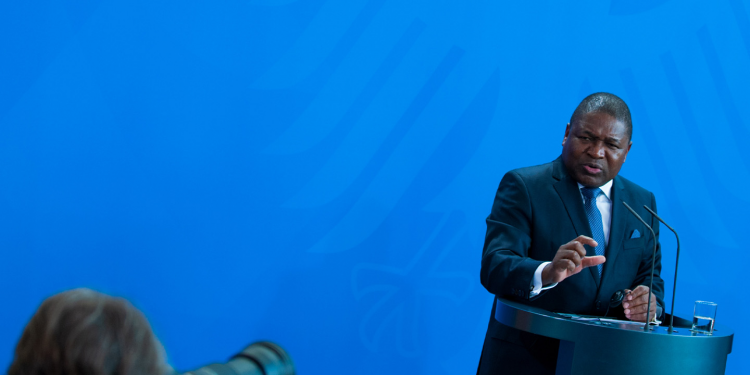Amid escalating post-election protests in Mozambique, outgoing President Felipe Nyusi has dismissed the need for foreign mediation, emphasizing the importance of internal dialogue to resolve the unrest, according to the Portuguese news outlet Observador.
Speaking on Monday at a reception for leaders of political parties represented in parliament, as well as the extra-parliamentary New Democracy (ND) party, Nyusi underscored Mozambique’s capacity to address its challenges independently.
“When the issue is dealt with by ourselves, it allows us to find a solution without schemes, arrangements, or external interests,” Nyusi stated.
He also held private meetings with political leaders, including Albino Forquilha of Podemos, a party that supported Venâncio Mondlane—the figurehead of the ongoing protests—and Daniel Chapo, the president-elect and current secretary-general of Frelimo, which has dominated Mozambique’s political landscape for nearly 50 years.
Nyusi reiterated his stance that Mozambique’s problems should be solved internally, advocating for dialogue as the pathway to peace. His earlier effort to bring together all presidential candidates for discussions failed, as Mondlane, who is under indictment and in hiding, has refused to return to Mozambique or disclose his location for a potential meeting abroad.
“The solutions for Mozambique can only be found by us Mozambicans,” Nyusi asserted, though the ongoing violence underscores the difficulty of achieving consensus.
The protests began on October 21, following a violent government crackdown on Mondlane and his supporters during a press conference. The incident occurred just days after the murder of two Mondlane associates who had contested the results of the October 9 presidential election.
Official results, announced on October 24, declared Chapo the winner with 71% of the vote, and his Frelimo party secured 195 out of 250 parliamentary seats. Both local observers and international monitors widely disputed the results.

The situation escalated further when the election results were ratified on December 23, sparking widespread violence that has resulted in a surge in fatalities. According to Plataforma Eleitoral Decide, an NGO monitoring elections in Mozambique, at least 175 people have been killed in the last week alone.
The ongoing violence has forced thousands of Mozambicans to flee to neighboring Malawi and Eswatini, while South Africa has shut down a key border crossing due to the unrest. These developments have prompted the Southern African Development Community (SADC) to call for an immediate cessation of hostilities to facilitate dialogue.
The rising tensions highlight the significant challenges Mozambique faces as it seeks to resolve its political crisis, with Nyusi’s push for internal dialogue standing in contrast to growing regional and international calls for intervention.









